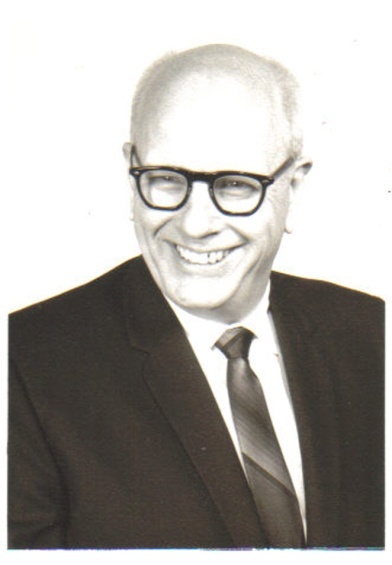| << Chapter < Page | Chapter >> Page > |

Arthur Benjamin Niemoller (1912-1998) lived a long and full life. He exemplified dignity during his final years of life.
But the story doesn’t end there. I attended graduate school at Wayne State University in Detroit, which isn’t too far from the Cincinnati area, where Montgomery is located. I began visiting my grandfather regularly, which was quite interesting because I’d had very little contact with him before that (my family has never been close). He was a very active man. He was a Sunday school teacher and church council member at the local Presbyterian church, he belonged to a retired men’s club, he had season tickets to the opera, and he regularly attended the symphony. He had many friends, some of whom had also lost their spouses to old age. Most surprising, however, was that in his late 70s he joined two other men in forming a new company. He was responsible for developing the computer programs that calculated the materials needed and the cost of those materials for building an isolated phase bus (something for carrying industrial strength electrical currents in power plants, I never really understood what he did). He was very proud of his work, and always eager to show me his new computer programs. I was just as proud of him, and I am very pleased to be able to say that he is the only person who attended all three of my college graduations (B.S., M.A., and Ph.D.). We developed a relationship I will always treasure.
The last time I saw my grandfather, he had been given 3 weeks to live. He had been suffering from dementia for several years, and typically wasn’t sure who was visiting him. He thought I was his son Donny, and it didn’t help that my wife and my aunt are both named Donna. On that last day I saw him, he was not the excited man of 80 years old who had a new computer program to show me. In fact, it took a while for me to convince myself he was actually still alive. It is frightening to see what can happen to the human body as a result of what is simply a natural process (old age, that is, dementia is certainly not a given with old age). Before I left, I prayed to God, deeply and sincerely, that my grandfather would finally just die. I was the last person in our family to see him alive. It is even more frightening, though merciful nonetheless, to think that my prayer was answered. I was satisfied that his life had been a good one, and content that his suffering was ended.
Has there been anyone in your life who meant a great deal to you but who has died? Were you able to participate in their dying process, and if so, how difficult was it? Imagine what it might be like to face death yourself, and think about how you might want others to treat you. Do your feelings and expectations fit within the cultural expectations and/or traditions of your family and community?

Notification Switch
Would you like to follow the 'Personality theory in a cultural context' conversation and receive update notifications?